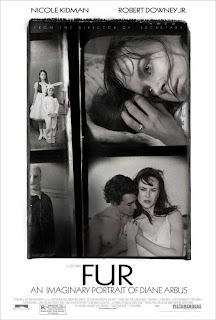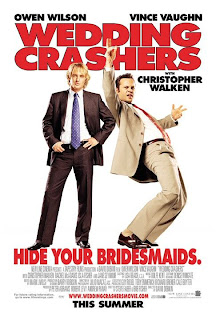Today is July 21, 2007.
For some, this day doesn't necessarily mean anything; probably another droning day with an uneventful bore of a Saturday. But to billions of fans to the Harry Potter series around the globe, today is a difficult day to go through.
To others, the books might be just another set of books, pages to be read, words to gulped down, stories to be comprehended -€“ a passing form of entertainment that generally doesn't leave a legacy behind. But to come and think of it, this is the only series of books that pulled the whole generation to reading again, reviving the world from almost illiteracy countenance, children and adults alike. It's no escape this is a phenomenon, and things like this, I'm afraid could sometimes happen only once in a lifetime.
I could still remember as a young high school student of 12, I was encapsulated by the Potter universe not by my own will. It was the National Book Week and we, students, were forced to read a book material. As a non-reader, I horribly detest books questioning what goodness does it bring, what benefit shall we get, but as being forced to read one and to even adapt it on stage, spot on, I laid my sights on Peter Pan by J. M. Barrie. I thought it was such an easy book to read, so childish, no troubles, no challenges, and no mishmash sort of plots. Reading it will be swift, no worries at all, so I could focus more in the world of academia. Then it turned out that Peter Pan was already taken by somebody else. Damn, I thought. Well I never really thought that word at the time; I was too innocent for swearwords. Maybe Hansel and Gretel would be easy as well...
It was my friend, also my classmate, who recommended Harry Potter and the Chamber of Secrets. By the time I heard it from her, I was asking, "What's Harry Potter? A dog?" But the question shouldn't be "what", but should be "who" instead. I've read the book, although with great difficulty as I do not read anything like any book, and felt like a bloody stranger in this world of wizards. It was then I realised, what I was reading was a sequel, not really the first book. Harry Potter and the Sorcerer's Stone came to my hands, and later also fell into my head that it's actually Philosopher's Stone. Blemmin' Americans change things so much.
Out of being forced to read just ONE book, I later found myself reading so cautiously and carefully the third book in the series already, Harry Potter and the Prisoner of Azkaban. It was such a doorstopper that I could ALMOST swap my presence in school for this book. As though possessed by an otherworld spirit, I suddenly pulled out my pen and paper (this all happened while in a classroom lesson; the subject was Algebra and it was so definitely boring that I thought of doing something else important to me). It was then I started writing own Harry Potter novel, out of intermediate papers. Whilst everyone gladly listened to the lessons, and as the teacher was led to believe that I was attentive and really copying what's written in the board, she doesn't know that I was lost in space writing my own craft of universe already. Everything just melted away and felt as though it was just me existing, holding my pen and writing as though there was no tomorrow. A year later in the inattentive school lessons, the draft was finished and I called it Harry Potter and the Broken Moon Amulet, not to boast but was a cult success in our high school grounds. It was 372-pages long and until now, I still couldn't believe that I had actually written it all, from a boy who never liked books, who disliked the idea of writing.
Then Harry Potter and the Goblet of Fire came into my hands, in which my sister in United Kingdom started giving me the whole series in UK Editions, which I am so glad because it's so rare in the Philippines to find one (well, extinct actually), followed by the dark and gloomy Harry Potter and the Order of the Phoenix, the thickest of the series, like a massive brick. I was already 17 years old, 2005, when I flipped the last page of Harry Potter and the Half-Blood Prince, the mounting sixth of the series.
The world had already turned. From a no-knowing eyed 12-year-old boy, who liked stories but hated the form of books, who loved videogames and playing games alike, who once dreamed to become an architectural engineer, to a pilot, to a computer programmer (never a doctor) - now wanted nothing else in the world but to become a writer. It's a silly thing to say but no matter how silly it is, this is something worth holding on to.
Now Harry Potter and the Deathly Hallows is almost at our doorstep; and the end is inevitable. J. K. Rowling had influenced a lot of today's generation and turned the children from videogames, from skipping school, from total ignorance to the light of reading. May it be different cultures in the world, different races, different manners, Harry's world serves as a link that unites each other. Sometimes it's hard to let go of something that has already been a part of our lives, and the Harry Potter books became a big chunk of my teenage years, letting me believe that sometimes the greatest weapons in the world are the pen, paper and the brain. J. K. Rowling, once a struggling single-mother, who goes to cafes to write in order to save her heating bills at home and to shoulder her child's life, is now the world's most successful writer. Her rags-to-riches story is an inspiration to many and that teaches us that letting go of our dreams could be our biggest mistake of all.
It's always sad to say goodbye. Today is already the end, but it's also a beginning, a challenge to the world. The Harry Potter series might have become pop culture phenomena, but I believe there's something more to it than there will ever be. The children's weakness is of course magic, but the cleverness and humanity of J. K. Rowling, the very essence and message of her stories, is that there's always some magic left in this world no matter how cruel this life could be. Love, friendship and family, are the most magical things on Earth and Rowling proves that they are indeed worth waving our wands about, fighting for what we believe in. Children who grew up with the Harry Potter books, and who truly understand its message and clarity of voice, will become good humans in the near future I believe.
The question that's reverberating now in our eardrums is "Will Harry live or die?" in this last and concluding book of the series. It has been my prediction for ages and ages that Harry is the final Horcrux in which Voldemort's soul was penetrated into, and that based on the prophecy: "Neither one will live while the other survives", tells us that one should kill the other. Harry might kill Voldemort; or Voldemort might kill Harry; or both shall die. It's a dreadful conclusion but if it brings impact to the whole story, I trust J. K. Rowling to give justice to her hardwork. Finally in a few days, I will run through the last adventure myself, reading it with grace, and find out Harry's final fate.
But it's not supposed to be the question between whether Harry lives or dies. The important thing is that the Harry Potter world will remain here, always ready to influence the future generations with this classic saga. Although no more books to wait for, as we got used year after year of waiting, this is finally the end, and as I realised this is the day, the impact came rolling down like thunders. These were the books that changed my life, influenced me in all ways possible, and led me to a different road rarely trailed by any. These were also the books the opened my imagination and also opened my eyes to the world.
Everyone grows up. It's a scientific fact. But the Harry Potter books will always bring the kids in us, dreaming of adventures, pulling our wands, enchanting spells, and dreaming of fighting for good over evil.
Thanks so much to this brave woman, J. K. Rowling, who defied the odds and never left the world without the spark of magic.
As what Rowling once said, once when the books are finished, it's now time to believe in real magic that exists in our world. It only takes a generous effort so see clearly the sparks around us.
Copyright (c) 2007 Janz Datinguinoo















